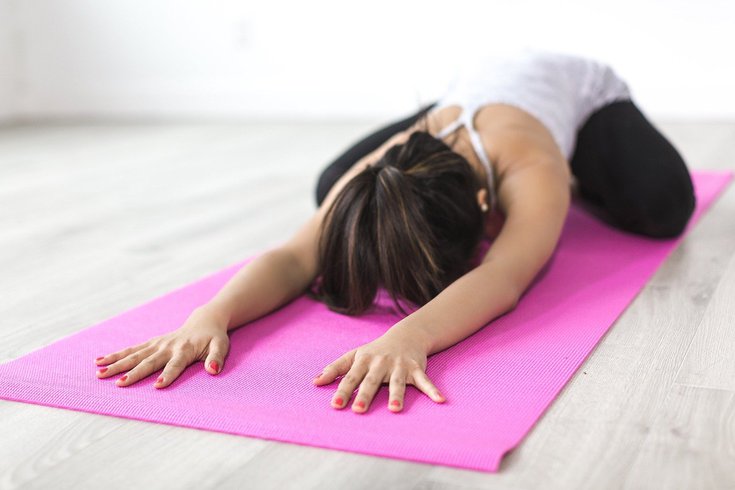
November 30, 2020
 StockSnap/27577 images/Pixabay
StockSnap/27577 images/Pixabay
With COVID-19 restrictions continuing to be tightened in the Philly region, finding creative ways to stay active will be important. Yoga, which is adaptable to small spaces, is one way experts say you can keep your blood pumping.
As spikes in coronavirus cases have health officials encouraging people to hunker down inside their homes, the World Health Organization is stressing the importance of physical activity.
New WHO guidelines emphasize that every move counts – no matter a person's age or ability.
The guidelines recommend all adults get at least 150 to 300 minutes of moderate to vigorous aerobic activity per week. This includes people living with chronic conditions or disabilities – a change from previous guidelines that solely focused on healthy adults.
Children and adolescents should exercise for at least an hour a day, according to the new guidelines.
The previous recommendations stated that healthy adults, ages 18 to 64, should do at least 150 minutes of moderate exercise or a minimum of 75 minutes of vigorous exercise each week.
COVID-19 restrictions and the colder weather have made it more difficult to stay active, but the updated guidelines provide a reminder to remain active.
Regular exercise can help prevent and manage many diseases including heart disease, type 2 diabetes and cancer. It also is essential for optimal brain health.
Even prior to the COVID-19 pandemic many adults and adolescents weren't getting enough exercise, the WHO said. That leads to higher health care costs and lost productivity.
Older adults are at particular risk of declining health due to sedentary behavior. Researchers at McMaster University have found that reducing daily steps to fewer than 1,500 for just two weeks can cut older adults' insulin sensitivity by a third and lead to an almost 4% decline in leg muscle.
Adults ages 65 and older should emphasize balance and coordination, and muscle strengthening in their exercise regimen, the guidelines advise.
"Being physically active is critical for health and well-being – it can help to add years to life and life to years," WHO Director-General Dr. Tedros Adhanom Ghebreyesus said in a statement. "Every move counts, especially now as we manage the constraints of the COVID-19 pandemic. We must all move every day – safely and creatively."
While staying active is more challenging right now, fitness experts say there are still plenty of ways to keep moving throughout the day. Here are some top suggestions they offered to CNN, Washington Post and The Conversation.
• Have a dance party in the living room
• Use cleaning and other household chores as an opportunity to get some steps in.
• Play hide-and-seek or tag outside or inside the house with the kids.
• While the weather still permits, get outside for walks, jogs or bike rides. Just remember to dress warmly and bring water.
• Create a makeshift gym in your home. It doesn't need to be filled with fancy equipment, just enough space to do body-weight exercises such as push-ups, squats, lunges and elastic-band exercises.
• Write down different exercise challenges on pieces of paper and stack in a jar. Have everyone in the family complete the activities throughout the day.
• Do yoga as a family.
• If your children find walking boring, turn it into an opportunity for play by going on a scavenger hunt or playing games like I Spy.
The experts say that if you don't already exercise regularly, start small and slowly increase your frequency, intensity and duration. Discuss with your doctor the safest ways to add more physical activity to your day.